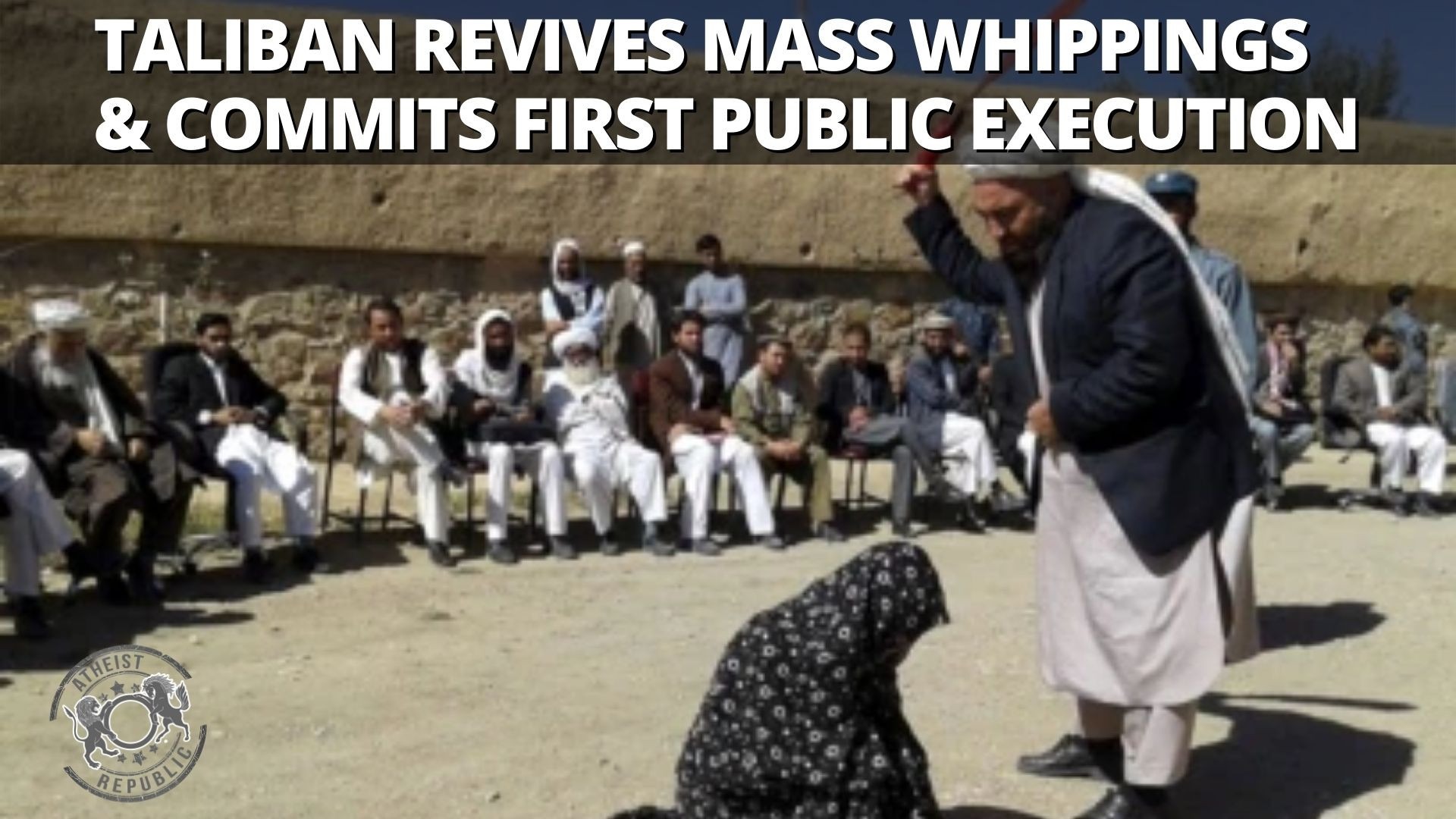
Since ruling over Afghanistan in August 2021, the Taliban has intensified its punishments against those accused of various crimes, despite initial promises of respecting human rights and media freedom after taking over the country 15 months ago.
In perhaps the first public execution since the Taliban took power last year, a man was sentenced to death on December 7 in the western province of Farah, followed by a public flogging of 27 men and women in a soccer stadium in the northern region of Parwan.
After Taliban authorities in #Afghanistan announced the first public execution since last year’s takeover, @UNHumanRights reminded that the action constituted a form of cruel, inhuman or degrading treatment or punishment. #StandUp4HumanRightshttps://t.co/MgcPApqxsF
— UN News (@UN_News_Centre) December 7, 2022
The convicted murderer was not identified. But according to the Washington Post, Taliban officials said that the man was already accused of murder five years ago, long before the Taliban staged a comeback in Afghanistan. He was also found guilty of murder after three court hearings.
The man was executed by the father of his murder victim, who shot the murderer three times as the crowd watched. This act was possible due to the Islamic legal tenet of “qisas,” which permitted personal retribution for crimes.
After the public execution of the murderer, 18 men and nine women were lashed in front of the public for alleged crimes of adultery, theft, and drug offenses. A court official said that the men and women were flogged around 25 to 39 times, and an unspecified number of the accused were imprisoned for two years in Parwan’s provincial capital, Charakar.
The Taliban also doubled down on its harsh restrictions against women, imposing gender segregation in places such as universities and gyms. According to an Al Jazeera report, a 22-year-old female Islamic law student named Sadaf was accused by local Taliban officials of committing a “moral crime” after talking to a male who wasn’t her relative.
The Al Jazeera report also revealed that Sadaf accused a local Taliban official of framing her after refusing to marry his son because she “did not want to marry a Talib [Taliban member].” She was publicly flogged 30 times at a local mosque before passing out.
Human rights organizations and activists, including the United Nations, expressed their concerns over the increasing number and severity of public floggings and executions in Afghanistan under the Taliban regime.
“The public flogging of women and men is a cruel and shocking return to out-and-out hardline practices by the Taliban. It violates the absolute prohibition of torture and other ill-treatment under international law and should not be carried out under any circumstances,” Samira Hamidi, Afghan human rights activist and South Asia campaigner for Amnesty International, told Al Jazeera.
Afghanistan: Amnesty International condemns public execution by the Talibanhttps://t.co/mzZhrMzdEk
— Amnesty International South Asia (@amnestysasia) December 7, 2022
A statement from the UN Office of Human Rights in Geneva described the public execution of a man in Farah as “deeply disturbing” and asked the Taliban to place an “immediate moratorium” on all executions.
However, the Taliban repeatedly defended their actions, saying that the executions were conducted correctly in Sharia law and accused foreign critics of disrespecting Afghanistan’s laws and religion.
